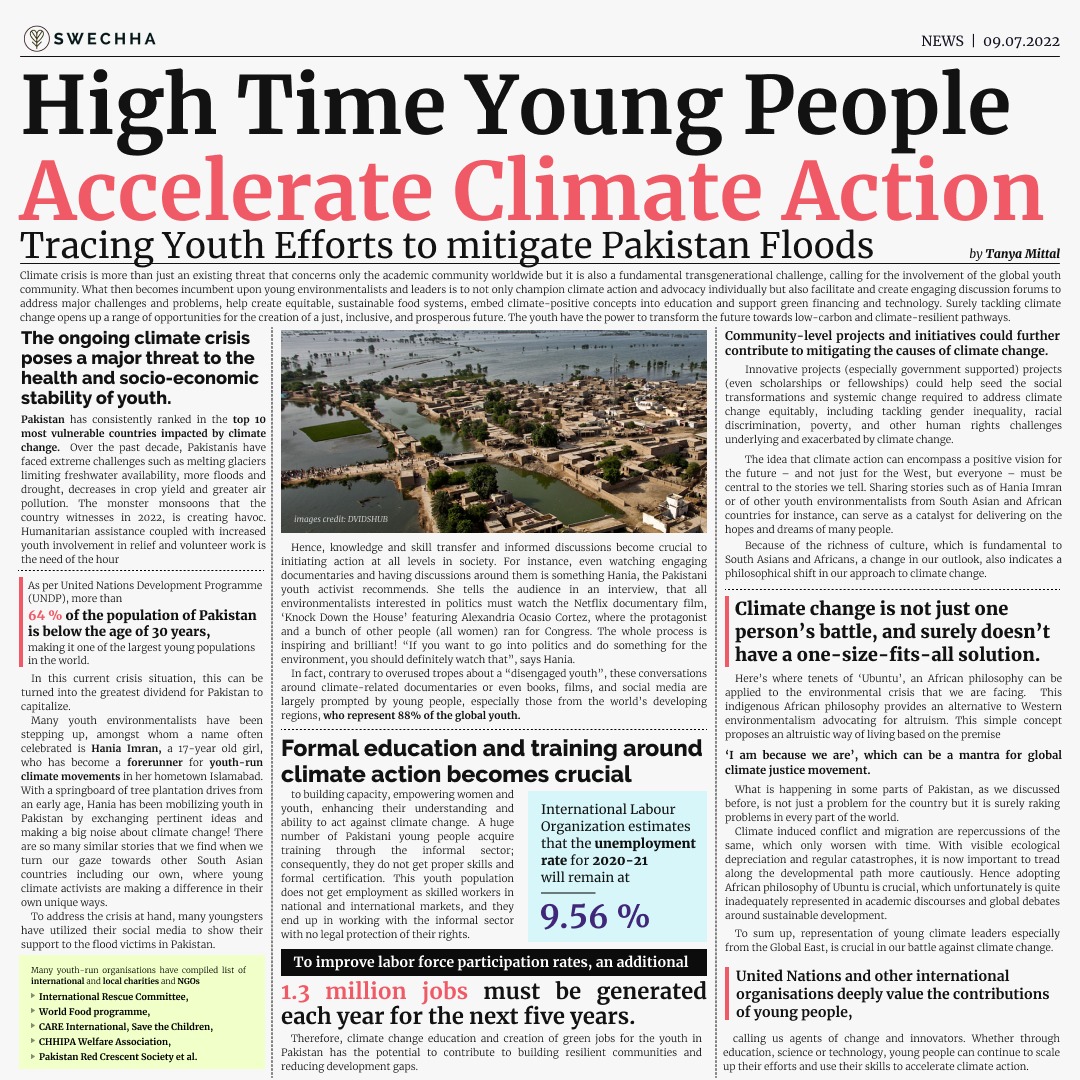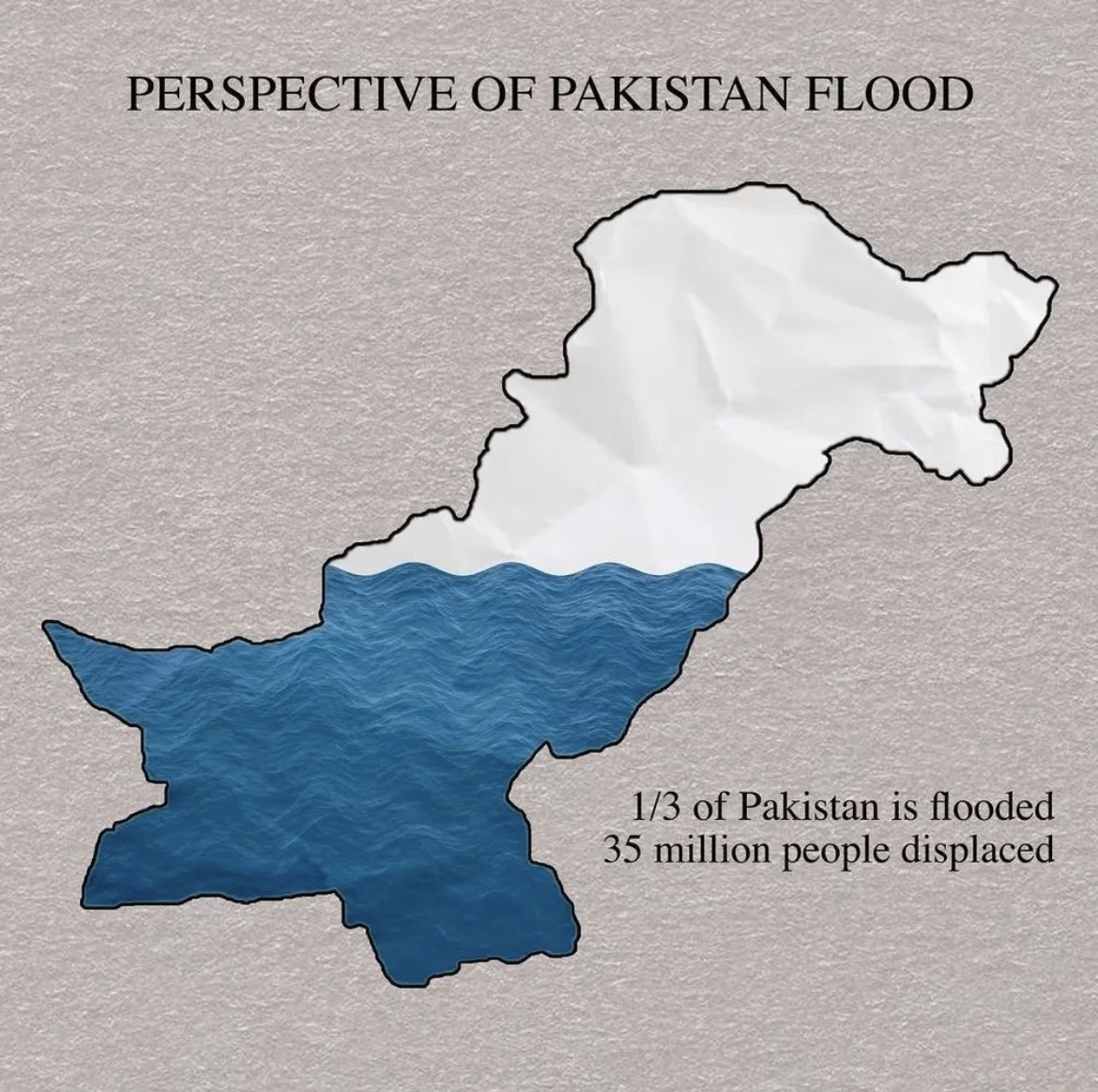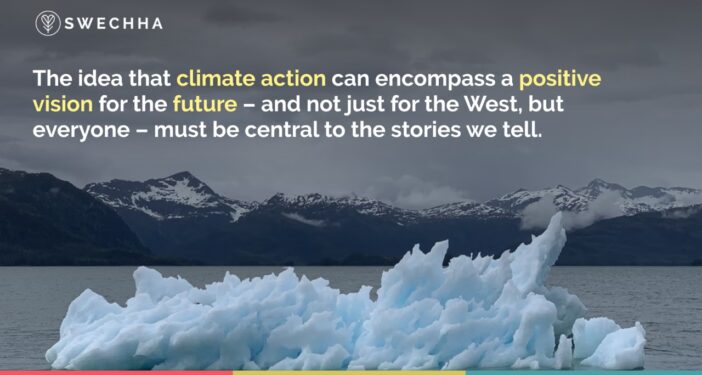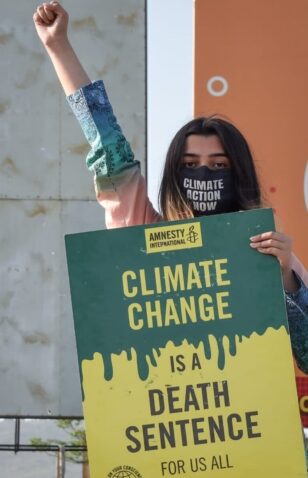HIGH TIME YOUNG PEOPLE
ACCELERATE CLIMATE ACTION
- by Tanya Mittal
Ubuntu : I am, because we are.

Climate crisis is more than just an existing threat that concerns only the academic community worldwide but it is also a fundamental transgenerational challenge, calling for the involvement of the global youth community. What then becomes incumbent upon young environmentalists and leaders is to not only champion climate action and advocacy individually but also facilitate and create engaging discussion forums to address major challenges and problems, help create equitable, sustainable food systems, embed climate-positive concepts into education and support green financing and technology.
Surely tackling climate change opens up a range of opportunities for the creation of a just, inclusive, and prosperous future. The youth have the power to transform the future towards low-carbon and climate-resilient pathways. The ongoing climate crisis in Pakistan, for instance, poses a major threat to the health and socio-economic stability of youth. Pakistan has consistently ranked in the top 10 most vulnerable countries impacted by climate change. Over the past decade, Pakistanis have faced extreme challenges such as melting glaciers limiting freshwater availability, more floods and drought, decreases in crop yield and greater air pollution. The monster monsoons that the country witnesses in 2022, is creating havoc. Humanitarian assistance coupled with increased youth involvement in relief and volunteer work is the need of the hour! As per United Nations Development Programme (UNDP), more than 64 percent of the population of Pakistan is below the age of 30 years, making it one of the largest young populations in the world.
In this current crisis situation, this can be turned into the greatest dividend for Pakistan to capitalize. Many youth environmentalists have been stepping up, amongst whom a name often celebrated is Hania Imran, a 17-year old girl, who has become a forerunner for youth-run climate movements in her hometown Islamabad. With a springboard of tree plantation drives from an early age, Hania has been mobilizing youth in Pakistan by exchanging pertinent ideas and making a big noise about climate change! There are so many similar stories that we find when we turn our gaze towards other South Asian countries including our own, where young climate activists are making a difference in their own unique ways. To address the crisis at hand, many youngsters have utilized their social media to show their support to the flood victims in Pakistan. Many youth-run organisations have compiled list of international and local charities and NGOs like International Rescue Committee, World Food programme, CARE International, Save the Children, CHHIPA Welfare Association, Pakistan Red Crescent Society et al. Some more important global relief agencies where one can donate are available here. Social media influencers have dedicated pages and story highlights towards flood assistance and towards sharing few non-monetary options to support those impacted by the unprecedented floods.
Hence, knowledge and skill transfer and informed discussions become crucial to initiating action at all
levels in society. For instance, even watching engaging documentaries and having discussions around them is something Hania, the Pakistani youth activist recommends. She tells the audience in an interview, that all environmentalists interested in politics must watch the Netflix documentary film, 'Knock Down the House' featuring Alexandria Ocasio Cortez, where the protagonist and a bunch of other people (all women) ran for Congress. The whole process is inspiring and brilliant! "If you want to go into politics and do something for the environment,
you should definitely watch that," says Hania.

In fact, contrary to overused tropes about a “disengaged youth”, these conversations around climate-related documentaries or even books, films, and social media are largely prompted by young people, especially those from the world’s developing regions, who represent 88% of the global youth.
At the same time formal education and training around climate action becomes crucial to building capacity, empowering women and youth, enhancing their understanding and ability to act against climate change. A huge number of Pakistani young people acquire training through the informal sector; consequently, they do not get proper skills and formal certification. This youth population does not get employment as skilled workers in national and international markets, and they end up in working with the informal sector with no legal protection of their rights. The International Labour Organization (ILO) estimates that the unemployment rate for 2020-21 will remain at 9.56 percent. To improve labor force participation rates, an additional 1.3 million jobs must be generated each year for the next five years. Therefore, climate change education and creation of green jobs for the youth in Pakistan has the potential to contribute to building resilient communities and reducing development gaps.

Community-level projects and initiatives could further contribute to mitigating the causes of climate change. Innovative projects (especially government supported) projects (even scholarships or fellowships) could help seed the social transformations and systemic change required to address climate change equitably, including tackling gender inequality, racial discrimination, poverty, and other human rights challenges underlying and exacerbated by climate change.
The idea that climate action can encompass a positive vision for the future – and not just for the West, but everyone – must be central to the stories we tell. Sharing stories such as of Hania Imran or of other youth environmentalists from South Asian and African countries for instance, can serve as a catalyst for delivering on the hopes and dreams of many people. Because of the richness of culture, which is fundamental to South Asians and Africans, a change in our outlook, also indicates a philosophical shift in our approach to climate change. Climate change is not just one person’s battle, and surely doesn’t have a one-size-fits-all solution. Here’s where tenets of 'Ubuntu', an African philosophy can be applied to the environmental crisis that we are facing. This indigenous African philosophy provides an alternative to Western environmentalism advocating for altruism. This simple concept proposes an altruistic way of living based on the premise ‘I am because we are’, which can be a mantra for global climate justice movement. What is happening in some parts of Pakistan, as we discussed before, is not just a problem for the country but it is surely raking problems in every part of the world. Climate induced conflict and migration are repercussions of the same, which only worsen with time. With visible ecological depreciation and regular catastrophes, it is now important to tread along the developmental path more cautiously. Hence adopting African philosophy of Ubuntu is crucial, which unfortunately is quite inadequately represented in academic discourses and global debates around sustainable development.

This youth population does not get employment as skilled workers in national and international markets, and they end up in working with the informal sector with no legal protection of their rights. The International Labour Organization (ILO) estimates that the unemployment rate for 2020-21 will remain at 9.56 percent. To improve labor force participation rates, an additional 1.3 million jobs must be generated each year for the next five years. Therefore, climate change education and creation of green jobs for the youth in Pakistan has the potential to contribute to building resilient communities and reducing development gaps.
To sum up, representation of young climate leaders especially from the Global East, is crucial in our battle against climate change. United Nations and other international organisations deeply value the contributions of young people, calling us agents of change and innovators. Whether through education, science or technology, young people can continue to scale up their efforts and use their skills to accelerate climate action.

